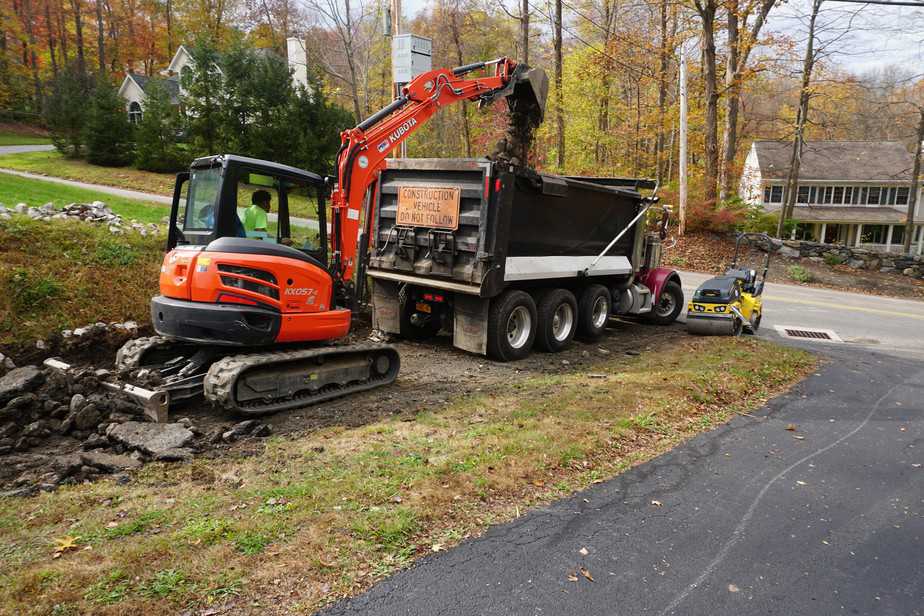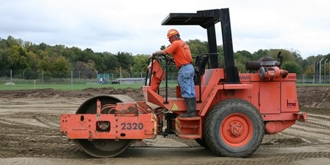Comprehensive Excavation Approaches: Understanding the Fundamentals for Success
In the world of construction and civil design, the importance of efficient excavation approaches can not be overstated. The mindful planning, precise implementation, and careful focus to information required in excavation jobs demand a thorough strategy that incorporates various essential aspects. From preliminary soil evaluation to the implementation of precaution and regular progress tracking, grasping these core elements is important for accomplishing success in any excavation endeavor. The real mastery exists not just in comprehending these basics but in effortlessly incorporating them to browse the intricacies of excavation tasks with skill.
Understanding Excavation Task Preparation

Effective excavation jobs are built on the structure of extensive and careful planning. The preliminary stage of any kind of excavation project is the preparation stage, where essential decisions are made that can substantially affect the result of the project. Throughout this phase, it is necessary to gather all relevant details concerning the site, consisting of topographical studies, dirt make-up, and any kind of potential hazards that might exist. Comprehending the task extent, spending plan, and timeline restrictions is crucial for producing a detailed excavation strategy that ensures the job's success.
One secret element of excavation job preparation is the growth of a comprehensive timeline that outlines the series of deadlines, landmarks, and activities. By very carefully considering all these variables during the planning phase, excavation tasks can be carried out efficiently and effectively, leading to successful results - septic ohio.
Soil Evaluation and Website Examination
Carrying out complete dirt analysis and website analysis is an important step in the prep work phase of any excavation job. Soil evaluation involves establishing the composition, structure, and properties of the dirt at the excavation website. This info is important for comprehending the dirt's bearing ability, dampness web content, and potential for erosion, which are crucial consider establishing the excavation methods and equipment required for the project.
Site assessment exceeds soil analysis and includes a broader evaluation of the overall site conditions. This analysis includes identifying any kind of possible hazards, such as below ground utilities, environmental worries, or unpredictable terrain, that might influence the excavation procedure. By extensively assessing the website, job supervisors can establish reliable excavation approaches that prioritize safety, effectiveness, and environmental management.
Utilizing innovative modern technologies like ground-penetrating radar, dirt tasting, and drone surveys can enhance the accuracy and effectiveness of dirt evaluation and site examination. Investing time and sources in these initial actions can eventually conserve time and avoid expensive delays or issues during the excavation process.
Devices Selection and Usage
Reliable excavation projects rely greatly on tactical equipment selection and utilization to ensure optimum efficiency and productivity. Selecting the appropriate equipment for the work is vital in making the most of efficiency and reducing downtime. Elements such as the kind of dirt, deepness of excavation, and task scope play a significant duty in figuring out the most appropriate equipment for the job at hand.

In enhancement to picking the suitable devices, appropriate usage is crucial to project success. Operators has to be trained to handle the equipment securely and effectively - excavating ohio. Normal upkeep checks and prompt fixings help avoid failures and make sure regular performance throughout the project
Security Procedures and Laws Conformity
In the realm of excavation projects, prioritizing precaution and compliance with laws is paramount to making sure a legally audio and protected operational setting. Security procedures incorporate a variety of techniques, consisting of carrying out extensive website evaluations, carrying out correct signage and barriers, and offering ample safety and security training for all personnel involved in the excavation process. Adherence to laws, such as OSHA needs in the USA, ensures that the excavation job satisfies the essential criteria to shield workers, onlookers, and the surrounding environment.

Monitoring Development and Adjusting Approaches
Just how can forecast supervisors successfully track the advancement of excavation projects and adapt their techniques accordingly to optimize end results? Tracking progression is crucial for making sure that excavation projects remain on track and satisfy deadlines.

Final Thought
In conclusion, mastering the principles of comprehensive excavation methods is crucial for the success of any type of job. By recognizing task planning, assessing dirt and website conditions, picking appropriate equipment, following safety and security guidelines, and keeping track of progression, task managers can ensure a efficient and smooth excavation process. Implementing these techniques will lancaster trenching certainly cause effective outcomes and decrease prospective dangers or obstacles throughout the excavation task.
The preliminary phase of any kind of excavation project is the planning phase, where crucial decisions are made that can significantly affect the end result of the task. Understanding the job timeline, budget plan, and range constraints is important for producing a detailed excavation plan that makes certain the job's success.
How can predict supervisors properly track the innovation of excavation tasks and adjust their techniques appropriately to optimize results? By closely keeping track of progression and being willing discover here to adjust strategies, job managers can boost the total success of excavation jobs.
By understanding job planning, examining dirt and website problems, picking appropriate devices, abiding with safety and security regulations, and checking progress, project managers can guarantee a smooth and reliable excavation procedure.